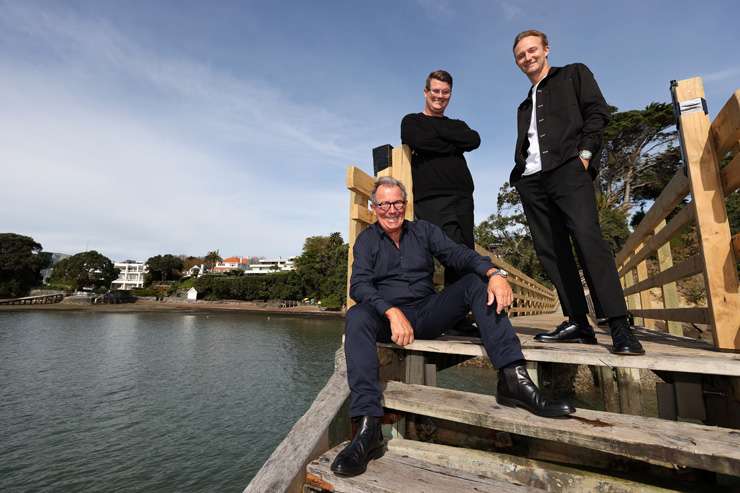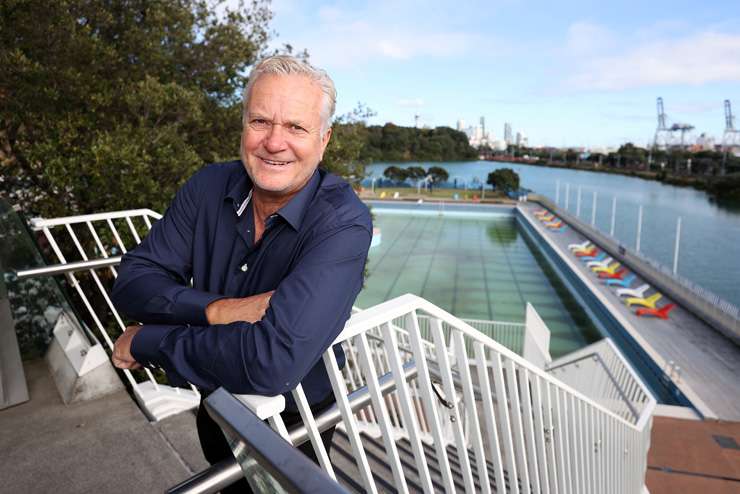Some savvy older people who saw a downturn coming sold their homes in the last six months or so in order in order to buy their next home when prices were down, an Auckland agent says.
Ross Hawkins, from Ray White Epsom, says these were smart people who were planning to sell anyway in order to move on with their next stage of life but who accelerated the plan to take advantage of the market.
“I do know some people that have cashed up over the last few months when there's a downturn coming and did move things along quicker than they possibly would have to be in a position to buy in the downturn.”
There weren’t great numbers of them but some “streetwise” people who have lived through property cycles before cashed up in the sellers’ market to be ready for the buyers’ market.
Start your property search
“They might not have sold at the very top but they might have seen it was starting to go down so they exited out, because it's very difficult to pick the top and pick the bottom in any market, but if you're seeing it sometimes it's worth acting on it.”
Barry Thom, UP Real Estate director, says aging baby boomers are well represented but that’s because they make up a large cohort of the population.
“If you were to say are baby boomers cashing up I think they probably are but it would be on the back of the fact that they are looking to maybe go into a smaller situation and invest some money for retirement and that sort of thing.
“There's a fair group of people in that sort of 60 to 80 age group, or even 60 to 70, whose family is kind of off their hands and they’re saying ‘well, maybe this is the time’. The baby boomers are a big group of people.”

Wall Real Estate agent Ollie Wall, right, with brother Andrew, centre, and father Graham. He says some buyers are probably thinking it’s a good time to jump to $20m house. Photo / Fiona Goodall
Stats NZ says the number of people aged 65-plus in New Zealand doubled between 1994 and 2020 to reach 842,000, with that predicted to double again by 2063.
Many boomers live in Auckland and Thom says most current sales in that age group are sales of circumstance where people adapt to changes in their lives, including no longer needing such a large house.
But rather than seeing a lot of activity in that market, Thom says the biggest issue now is people not having the confidence to go on the market because of the perception it's not a good time to sell.
“When you look at the stats for December and see the unit sales are down 45% that's a whole lot of sales that didn't take place and my belief is the reason they didn't take place is there wasn't a lot to sell because a whole lot of people are picking their moment to sell.
“That's the struggle because in actual fact good property is being received well and is selling.”
Ollie Wall, from Wall Real Estate, says he is not seeing people cashing out in the top-end market as anyone with a house worth over $10m or $15m likely already has a diversified portfolio.
But there are more properties being sold off-market in the $5m to $10m bracket than usual, he says, which may suggest some people are choosing to liquidate.
Wall says their agents don’t probe into why someone is selling up but he thinks it’s not so much because people are stretched but because buyers fall into either long-term or short-term buying categories.
“Some people buy properties to live in for two or three years and make half a million bucks and move on, and those people are probably going ‘oh, well we better sell it now so we do still make some money on it’ and then think about what's next.
“But people with a bit more long-term thinking are staying put, and also people that are long-term thinking are buying.
“There's a lot of people that all of a sudden are looking for quite high-end properties because they think, ‘well, we're not going to pay too much now, it’s a house we plan on having for 10 years or more so now is going to be a good time.’”

Ray White agent Ross Hawkins: “It's very difficult to pick the top and pick the bottom in any market.” Photo / Fiona Goodall
Some of those buyers are also people deciding now is a good time to make “the big jump” to a $20m house, Wall says
“If you're going to be in a $20m house at some stage, there's going to be a big jump involved and it's probably going to be from an $8m house to a $20m house or something along those lines, and they think now is probably a good time to do that.
"They feel like they’re not going to be paying too much whereas in the last three years it’s felt like maybe you’re paying a little bit over where the value sits, and people were having to do that, whereas now you’re paying value.”
Wall also says overseas buyers, who almost disappeared a year or so ago, are back and buying, probably because they were waiting for the market to drop enough. These are buyers from Singapore and Australia, who are exempt from the foreign buyer ban.
Wall says they are buying for the long-term, spending $10m-plus in holiday locations like Waiheke and Queenstown.
“I can see from their perspective because they are not selling a house here, they're only buying so they were happy just to wait until it seemed like a good time to buy.”
Paul Neshausen, from Barfoot & Thompson St Heliers, says he has not seen any changes in the pattern of high-end sales in his patch but says there has been a small uplift in activity in the $1m to $2m price bracket with people trying to buy before more interest rate rises, which could see them with $200,000 less from the bank to spend.
“If they've been approved $2m then in February that $2m becomes $1.8m almost so there's a little bit of a sense of urgency about spending what they've been approved.”
On the other hand, some people who own a house in the $2m to $3m bracket could be looking at selling because of further rate rises, he says.
“Especially in this sort of neighbourhood, they've got two cars on HP, a house and a beach house at Omaha, and with the rise in interest rates for some of them it's several $1000 per month that their mortgages have increased and so they are selling down something and typically it's not one of the cars, it's one of the houses.”











































































